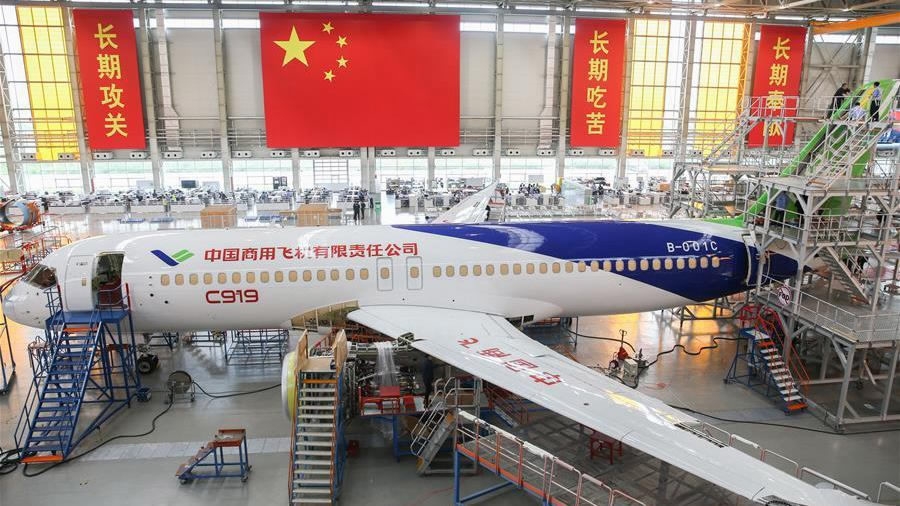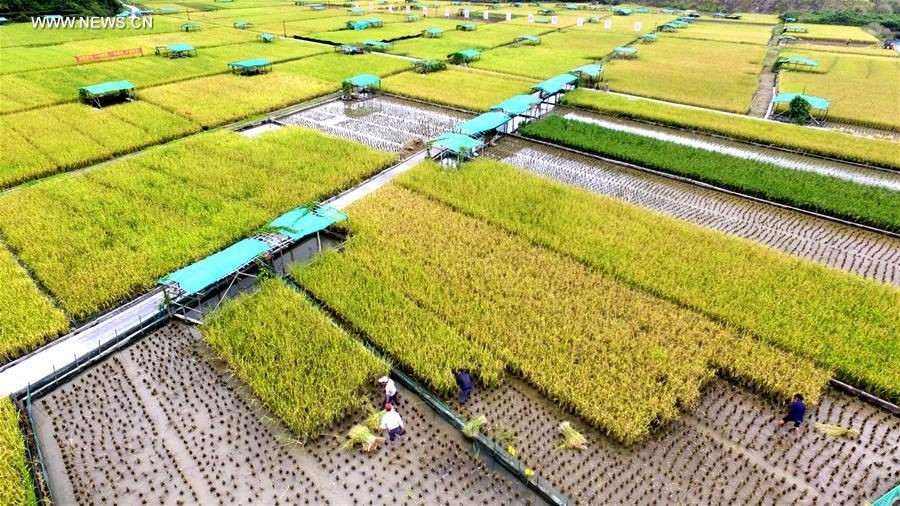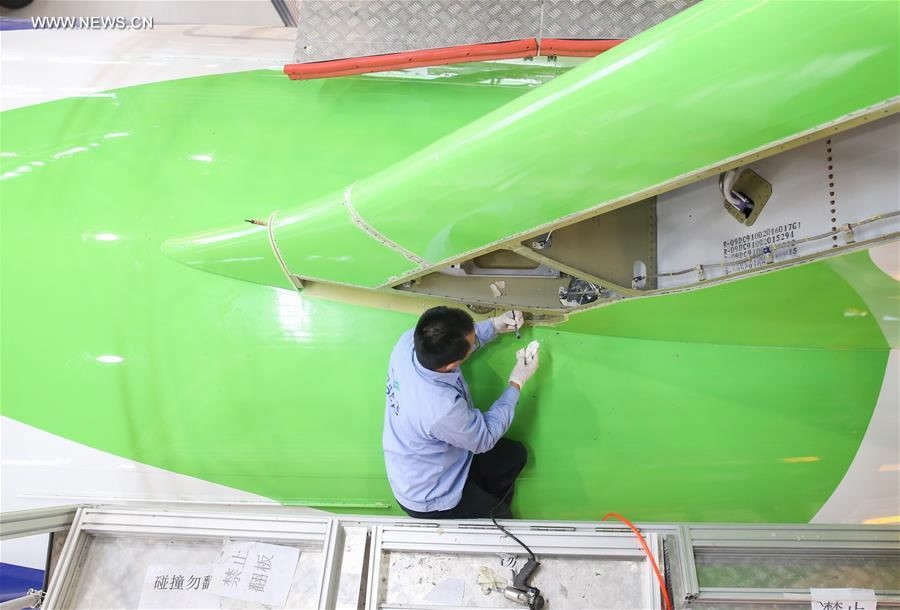
Opinions
16:45, 22-Oct-2017
Opinion: Should developing countries copy China’s success?
Guest commentary by Azmi Hassan

The ongoing 19th National Congress of the Communist Party of China (CPC) is not only considered to be the most important political event in China but is also getting huge interest from observers outside of China, as the week-long congress will not only elect the Party’s future leaders but also unveil the policy direction for the next five years of the world’s second largest economy.
The policy direction, which is not just limited to economic matters but also encompasses security and military agendas, can be read from two congress events, one which has already happened and another that has yet to occur.

A container for the freight train X9091 to Almaty of Kazakhstan is lifted in Urumqi, northwest China's Xinjiang Uygur Autonomous Region. /Xinhua Photo
A container for the freight train X9091 to Almaty of Kazakhstan is lifted in Urumqi, northwest China's Xinjiang Uygur Autonomous Region. /Xinhua Photo
First, the composition of the Standing Committee and the Political Bureau members of the CPC Central Committee, who will be unveiled at the end of the congress are indeed a clear signal that will illuminate China’s future direction.
But the most important signal was the speech delivered by Xi Jinping, General Secretary of the CPC Central Committee, who is also the Chinese President, on the first day of the congress.
There is no doubt that Xi’s three-and-half-hour opening speech was full with ideological matters, but even before the unveiling of the Standing Committee and its Political Bureau members, one can work out new policy directions with a high degree of accuracy.

Farmers harvest ratooning rice in the field at Dashu Village of Sanjiang Dong Autonomous County, south China's Guangxi Zhuang Autonomous Region, October 20, 2017. /Xinhua Photo
Farmers harvest ratooning rice in the field at Dashu Village of Sanjiang Dong Autonomous County, south China's Guangxi Zhuang Autonomous Region, October 20, 2017. /Xinhua Photo
When Xi said that the socialism with Chinese characteristics entering a new era offers a new model for other countries who want to speed up their development while preserving their independence, it struck the chord with nations that depended on China’s foreign direct investments (FDI), especially in Asia and Africa. China’s overseas investments are indeed massive and the bulk of it is concentrated on the two continents where it is most needed and felt.
China has now become a major development partner for nations from both continents and these investments not only color its trade relationships but also impact on diplomatic and political relationships. There have been accusations that China, with its economic clout, has been using its influence to determine the outcome of local politics. It is indeed a boom for these nations to be the recipient of Chinese investment, but it can also be a bane, due to its political sensitivity domestically.

System installation of the C919 aircraft coded 102 is underway at the assembly line of Shanghai Aircraft Manufacturing Co., Ltd. of the Commercial Aircraft Corporation of China (COMAC) in Shanghai, east China, October 18, 2017. /Xinhua Photo
System installation of the C919 aircraft coded 102 is underway at the assembly line of Shanghai Aircraft Manufacturing Co., Ltd. of the Commercial Aircraft Corporation of China (COMAC) in Shanghai, east China, October 18, 2017. /Xinhua Photo
Therefore, it is good to hear that Xi used the term “socialism with Chinese characteristics in new era” to reiterate that China will not leverage its economic clout to interfere with local politics because there have been skeptics before this, accusing Beijing of meddling in the politics of other nations, especially those that are heavily dependent on China’s investments.
Xi reiterated that China will never adopt the political systems of other nations, and he specifically mentioned the Western style of democracy, but he also added that China should and can learn from other civilizations. But again Xi also made the point that no one political system should be regarded as the only choice and China will not adopt the political system of any other nation blindly.
But possibly most interestingly, Xi added that if other nations want to look to China for inspiration, they should feel free to do so - and that is what global diplomacy is all about.
(The author is a senior political analyst based in Kuala Lumpur, Malaysia. The article reflects the author's opinion, and not necessarily the views of CGTN.)

SITEMAP
Copyright © 2018 CGTN. Beijing ICP prepared NO.16065310-3
Copyright © 2018 CGTN. Beijing ICP prepared NO.16065310-3